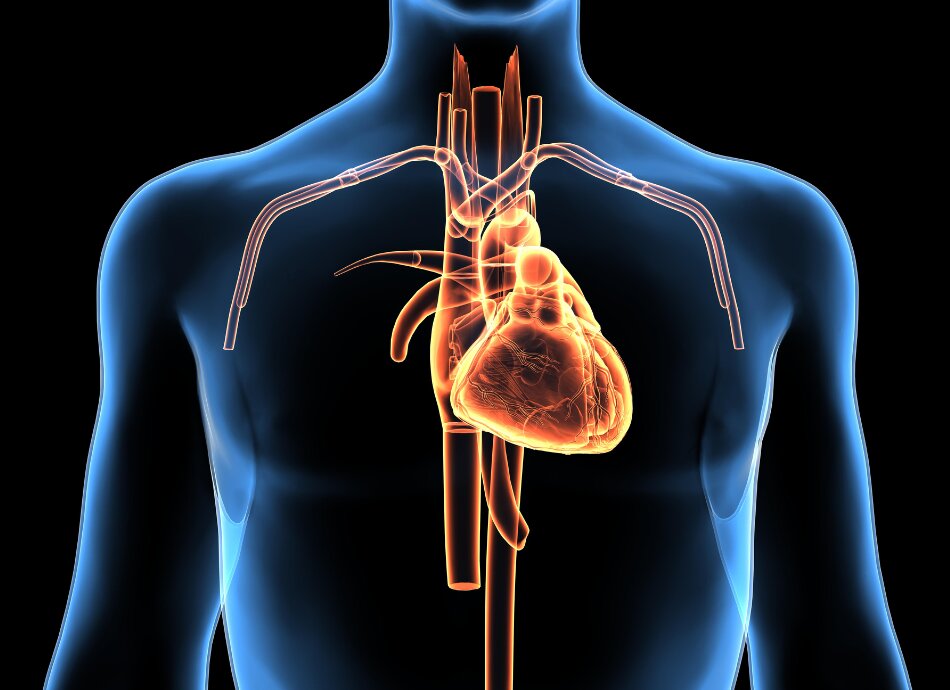Wishing everyone happy holidays and a joyful New Year from the Healthify team. Don't forget to Slip, Slop, Slap and Wrap!
Myocarditis
Also called heart inflammation, endocarditis or pericarditis
Key points about myocarditis
- Myocarditis is inflammation of your heart. Most people with this rare condition have mild illness and recover without complications.
- Viral infection is the most common cause of myocarditis. It can also be caused by infection from bacteria or fungi, some medicines or from autoimmune diseases.
- In rare cases when inflammation is severe, myocarditis can damage your heart.
- There have been very rare reports of myocarditis occurring after vaccination with the COVID-19 vaccines.
- However, you are more likely to get myocarditis from COVID-19 (along with a lot of other symptoms) than from the vaccine.

Myocarditis is inflammation (swelling) of your heart. It can affect the whole heart or just part of it. Myocarditis is a rare disorder. Each year about 100 people in Aotearoa New Zealand have myocarditis.
Video: Myocarditis: Causes, symptoms, diagnosis, treatment and prognosis | Kenhub
This video may take a few moments to load.
These terms all refer to inflammation of your heart, but differ depending on which part of the heart is affected.
- Myocarditis is inflammation of the heart muscle.
- Endocarditis is inflammation of the inner lining of your heart’s chambers and valves.
- Pericarditis is inflammation of the tissue that forms a sac around your heart.
These conditions can occur separately or together (myopericarditis).
Viral infection is the most common cause of myocarditis. It can also be caused by infection from bacteria or fungi, some medicines or from autoimmune diseases. Autoimmune diseases can also cause inflammation in other parts of your body.
When you have an infection, your immune system produces special cells to fight off disease. If the infection affects your heart, the disease-fighting cells enter your heart. However, the chemicals made by these cells can also damage the heart muscle. As a result, your heart can become thick, swollen and weak. Symptoms of myocarditis usually occur 1–2 weeks after a viral infection.
There have been very rare reports of myocarditis and pericarditis occurring after vaccination with the Pfizer COVID-19 vaccine and Novavax COVID-19 vaccine. It is more common following the second dose and in males aged 12 to 30 years. Although this side effect is rare, it can be serious.
| Seek medical attention if you experience any of the following in the first couple of weeks after your COVID-19 vaccination |
The risk of myocarditis from the vaccine is real but very rare
|
Note that you are far more likely to get myocarditis following a COVID-19 infection than you are following a COVID-19 vaccination.
The symptoms are different for each person, and depend on the type of myocarditis and the cause.
Symptoms of myocarditis include:
- chest pain
- fast heart beat (palpitations) or feeling like your heart is skipping a beat
- difficulty breathing (either ongoing, only when active or when lying down)
- tiredness and less ability to exercise
- swelling of your feet and legs.
See your doctor or nurse if you have had any of the above symptoms, and let them know if you have had cold symptoms, had a vaccine or started on a new medicine.
Often symptoms are mild and go away on their own and so can be undiagnosed. This is not a problem if the symptoms have cleared. Some of the tests you may need include:
- blood tests to check for heart muscle damage and inflammation
- an electrocardiogram (ECG) to check for problems in the electrical signals of your heart
- a chest X-ray, to check for fluid in your lungs or around your heart, or whether your heart is bigger than normal.
There are other more specialised tests that are normally only available in hospital. For example an echocardiogram (echo) is sometimes done. This uses sound waves to create a moving picture of your heart. It checks how well your heart is pumping and how well the valves are working.
Treatment for myocarditis depends on the cause and how severe it is. It can involve close monitoring and medication:
- There are medicines to help with breathing, fluid build up, keeping your heart pumping normally and with preventing blood clots.
- Your doctor will also suggest rest or reduced levels of activity.
- Some people need oxygen.
- It is important to avoid drinking alcohol while recovering, as this can further damage your heart.
- People with mild myocarditis may only need rest and medicine.
- If you have severe myocarditis, you will need more intensive treatment, which might include surgery.
Your doctor will generally recommend having a check-up after recovering to make sure there are no further problems.
Most people with myocarditis recover without any complications. Sometimes recovery is several months after you receive treatment. In some rare cases, the myocarditis can recur later.
Myocarditis(external link) Heart Foundation, NZ
Pericarditis(external link) Heart Foundation, NZ
References
- Heart inflammation(external link) National Heart, Lung and Blood Institute, US
- Myocarditis(external link) Patient Info, UK
- COVID-19 Myo-pericarditis for health professionals(external link)(external link) Immunisation Advisory Centre, NZ
- Myocarditis and pericarditis(external link) Medsafe, NZ, 2021
Credits: Healthify editorial team. Healthify is brought to you by Health Navigator Charitable Trust.
Reviewed by: Dr Jeremy Steinberg, FRNZCGP, Auckland
Last reviewed:
Page last updated:





